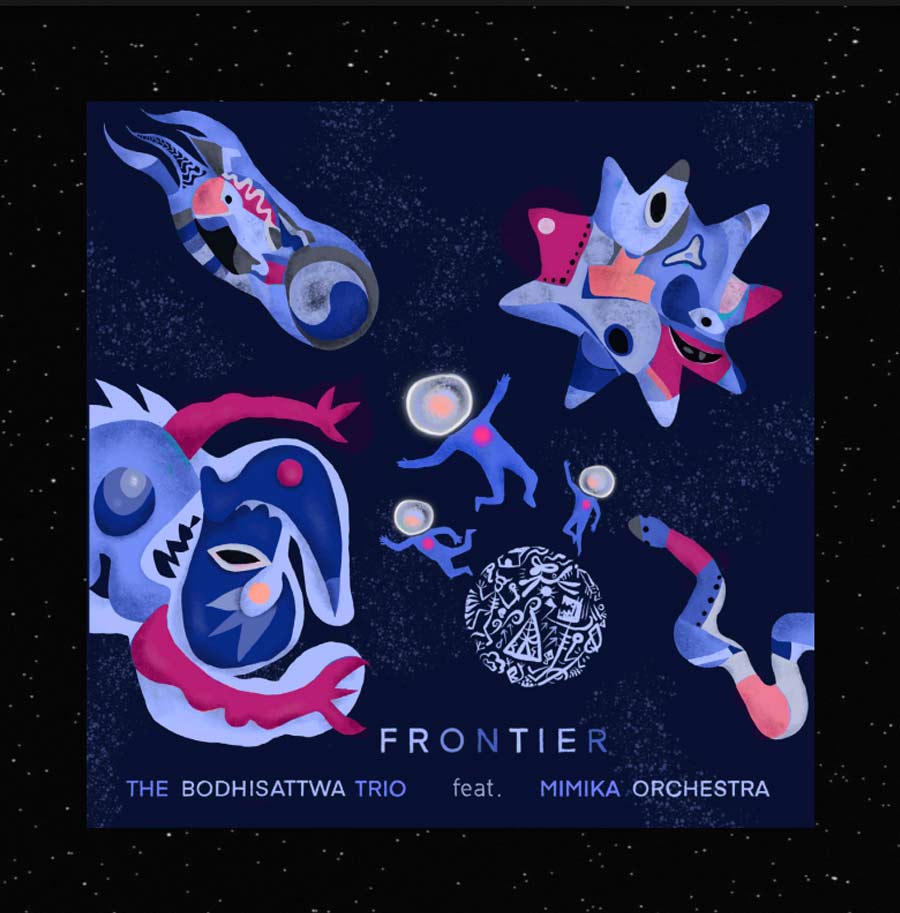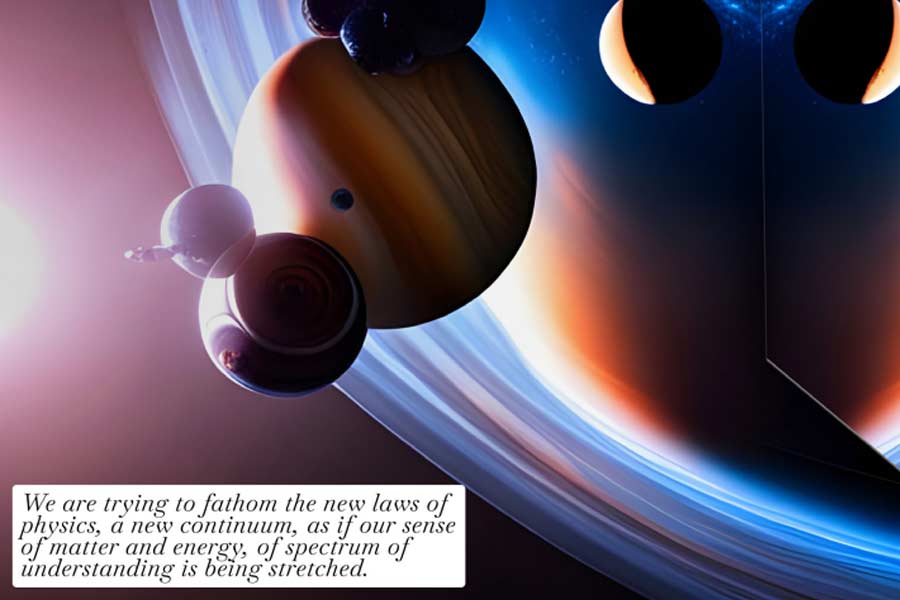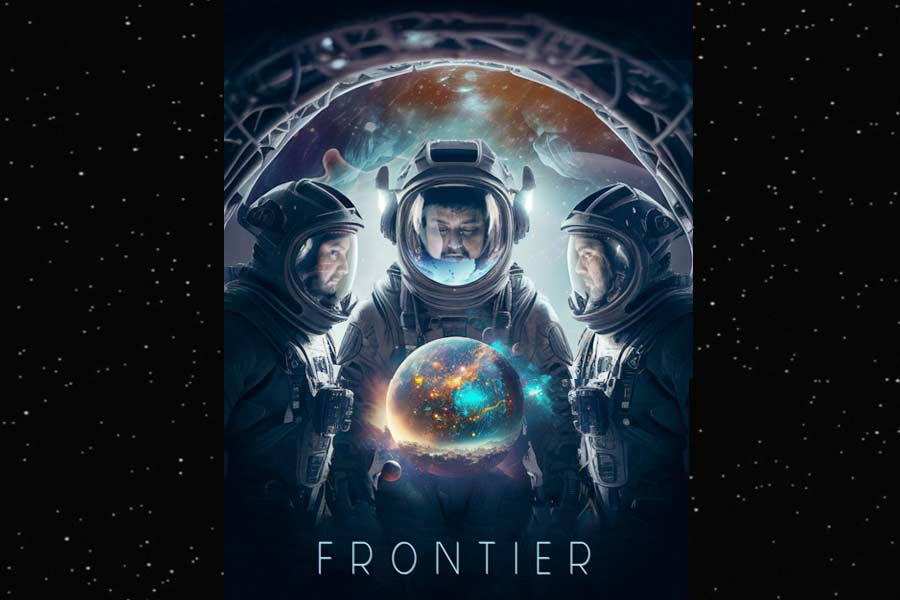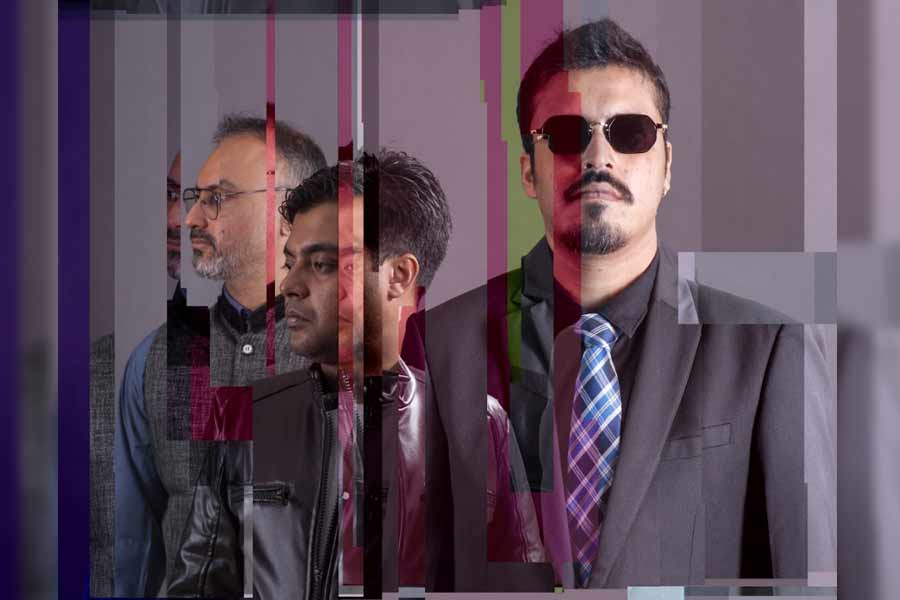This is not a story of a long time ago in a galaxy far, far away. It is about our planet set in a future that’s not so far away. There's music to take us on this heady trip through space and time as three astronauts, who have miraculously managed to survive a nuclear apocalypse, lift off from earth in a spaceship in search of a home. Utopia.
Arguably one of the most ambitious musical projects mounted in the sphere of improvisational music from Kolkata, a jazz-fusion band with a penchant for the avant-garde has dropped a concept album in collaboration with an orchestra _ would you believe it _ from Zagreb, Croatia. The 11 tracks that make up Frontier are a mashup of various genres _ horn driven R&B, western classical traditions rooted in the works of 20th century stalwarts Bela Bartok, Claude Debussy, Igor Stravinksy but topped with music of the Balkans and in-your-face contemporary improvisation. Blending seamlessly with the drum-n-bass combo are shades of traditional Indian music.
It all started in the small town of Koprivnica in Croatia that hosts an annual jazz festival and where The Bodhisattwa Trio played by virtue of being the only musical act of India to be signed by Croatian label Intek Music which released their 2019 offering, The Grey Album. It was through Intek that frontman Bodhisattwa Ghosh finally hooked up with Mimika Orchestra and its founder-conductor, the multi-instrumentalist Mak Murtic, and decided to collaborate.

The album cover Zvonimir Haramija Hans
Frontier is story-boarded as a conversation between the astronauts (The Bodhisattwa Trio) and the forces of outer space (Mimika Orchestra). The interactions come alive via the use of an effervescent palette of sonic delights oozing out of an electric guitar, synthesisers, drums and delicate injections of electronics. The quietly imaginative sound explorer that Mak is, his orchestra adds colour and symphonic heft to the music that spins a yarn of universal resonance.
How was the concept born? "I was particularly disgusted at the way humanity was behaving. And then with the pandemic, and now a war going on, I thought it was only a matter of time that we blow each other up. So, we don’t deserve this planet," says Bodhisattwa, the lead story-teller and guitarist for the trio that comprises keyboardist & synth bass-player Shonai and drummer Premjit Dutta. Hence the search for utopia, and finally, Earth X, the very antithesis of earth that becomes the ultimate destination of the wandering astronauts who land there after a long and arduous journey through multiple universes.

Mimika Orchestra during the recording of Frontier Bojan Kostic
Mak pursued the album with ideas from both ends of the spectrum _ contemporary jazz, rock and traditional musical heritage. "We discussed the similarities of Balkan and Indian cultures, north India specifically. We also have some similar instruments, and some similarities that have developed through time because of trade routes. I thought it would be interesting to use this idea and colour the music with this kind of a vibe which connects us even though we are exploring an imaginary space," he explains, revealing that he envisioned the end-result as something that couldn’t happen in America, something that “is not necessarily a reflection of western (music)”.
Packing an innovative punch is an accompanying comic book, designed using AI-generated software, that chronicles this imaginary voyage through space. It records the experiences of the astronauts in the form of daily logs about where all they dock, the many challenges of maintaining an over-worked spacecraft and near-death experiences due to fatigue. The comic book also contains a QR code that can be scanned for a link to download loss-less audio files of the album. “We don’t have the money to cut vinyls. And CDs are useless. Hence a comic book to engage with the audience,” says Bodhi. Smart move. A physical manifestation of the music by cocking a snook at a streaming obsessed musical universe is a neat go-around. The comic book will be on sale as merchandise when the band and the orchestra embark on a series of concerts throughout Europe, and hopefully India, planned for later this year.
The music of Frontier is grandiose. After all, if the idea invokes, even if tangentially, a certain Arthur C Clark or Andrei Tarkovsky, the musical canvas needs to be as wide as it can get. Surprisingly, it is accessible too _ more than what most independently produced concept albums usually end up being. There is a sense of foreboding throughout. But the seductive charms of the drone-like horns set up an intimate tone accentuated by the guitar that more often than not harps on a beautiful tune only to abandon it and move on. The beats are steady, definitive. Yet, at times, the drums foray into unpredictable territory.
Apocalypse, the opening track, is unsuspectingly gentle at start. Subsequent tunes, like The Experiment, Lunar Month, draw you in one by one. Matters get heady with the propulsive Ghosts of Mars, wherein exploration gives way to more pressing concerns: survival. Jupiter: Collision Course and Free Float, Europa Swim, Countergenesis all tell their own tales. And when the Final Frontier is reached, there is this familiar strain of a Rag Bhairavi, the idea of a new dawn, wherein the orchestra and the band are one. It is here that their souls meet and the listener is allowed a glimpse of the spectrum of possibilities that exist.
Frontier was recorded live in Koprivnica over two full days. “I don't know how we managed to pull off 11 full-length tunes in 48 hours,” says Bodhi recalling that while hearing the mixes at various stages, all he could think of was that the music had to accompany a movie. “It should be a 73-minute film on Netflix perhaps. But I don’t have the money for that. So I talked to my good friend, Shan Bhattacharya, a photographer and science fiction geek who has been associated with the band since its inception, to make a graphic novel out of it,” he says, explaining the genesis of the idea of the comic book.
Funding was a concern from the beginning. Hence, Bodhi took the initiative, doing most of the heavy lifting with their music label Intek providing logistical support during recording. But they all agree the end result has been more than well worth it. Mimika Orchestra is equally pleased with the way Frontier has evolved in partnership.

Mak Murtik with Shonai Bojan Kostic
“For me, the whole concept is that it is a sort of a dream world. You’re not in a story or film that is telling you what is happening. You should really imagine it yourself,” says Mak whose approach to the project, he admits was more Solaris than 2001: A Space Odyssey, the two cinematic landmarks that explore human nature while free-float in space. If Andrei Tarkovsky’s 1972 film dwelled on the power of the human unconscious in its exploration of the unreliability of reality, the radically innovative Stanley Kubrick intended to keep his 1968 epic concept open-ended; hovering between the darkly apocalyptic and the intrinsically optimistic.
The question, therefore, is where Frontier ends up in its reappraisal of the hopes of humanity. Is its denouement too simplistic, almost child-like in its revelation of utopia? Given what centuries of adult supervision has turned our world into, maybe banking on the children of tomorrow and their ideas isn’t such a bad idea. A clearer answer perhaps lies in the evocative guitar riff that reprises a raga many of us grew up to, thanks to yet another film made here in 1969, a year after Kubrick’s epic, in which two village bumpkins drum and sing their way to welcome a new morning: Look at the light of day, see how it clears the darkness _ of thought, action and being.

A page from the Frontier comic book Shan Bhattacharya











